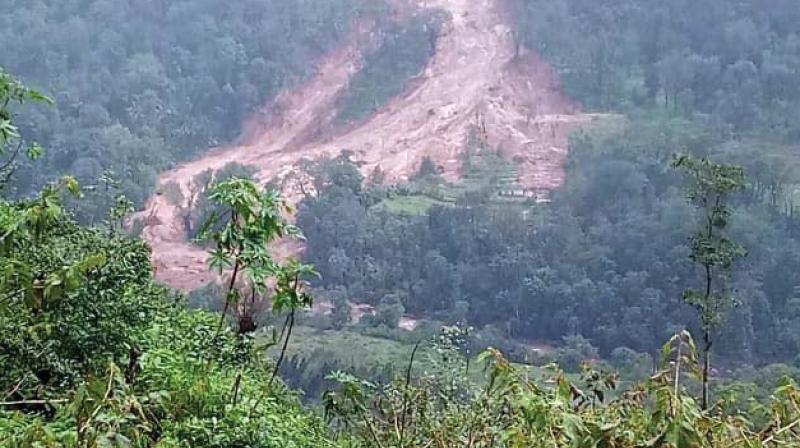Mangaluru: Hills sliding, time for Gadgil relook

Mangaluru: The unprecedented landslides in the Western Ghats in Kodagu district and Belthangady in Dakshina Kannada district this year, have triggered a serious discussion on enforcement of the Madhav Gadgil Committee report.
The Western Ghats Ecology Expert Panel (WGEEP) report commonly known as Madhav Gadgil Committee report was submitted to the Ministry of Environment and Forest (MoEF) in August 2011. The recommendations for the conservation of Western Ghats were shelved by the government following opposition from leaders who alleged it was anti-development and anti-people. The government then set up a committee headed by K. Kasturirangan but its report was also not enforced due to opposition from political parties.
"If the WGEEP report is enforced we can stop many of the incidents in the Western Ghats. Implementation of this report is necessary to protect the Ghats and the people," Vidya S Nayak, one of the member of the WGEEP Committee told Deccan Chronicle. "The report has clearly outlined the activities that can be permitted in the Ecologically Sensitive Zones (ESZs) and those which have to be stopped. It is sad that the government had shelved the report," she added.
Environmentalists and Sahyadri Sanchaya convener Dinesh Holla who has visited the landslide areas in Belthangady, feels that had the Union government followed the recommendations of Madhav Gadgil, such incidents in the Western Ghats could have been avoided. "The Gadgil report clearly opposes illegal mining, estates, hydel power projects and resorts in the Ecologically Sensitive Zone. Let us look at the recent incident in Belthangady. The most affected areas are those near Charmadi Ghat. The sensitive zones in Dodderibetta, Hosmanegudda, Ramana Gudda and Durgada Betta have witnessed illegal expansion of estates, homestays, resorts and plantations. They have destroyed the natural forests," Mr Holla said.
"In addition to the forests, grasslands are very important. But they are damaged by man-made forest fires, constructions and diversion of water bodies.. When there was heavy rain, the loose soil was washed away because of the absence of grass and finally entered the villages below. The sand and mud collected in the villages, this is a man- made disaster," he said.

